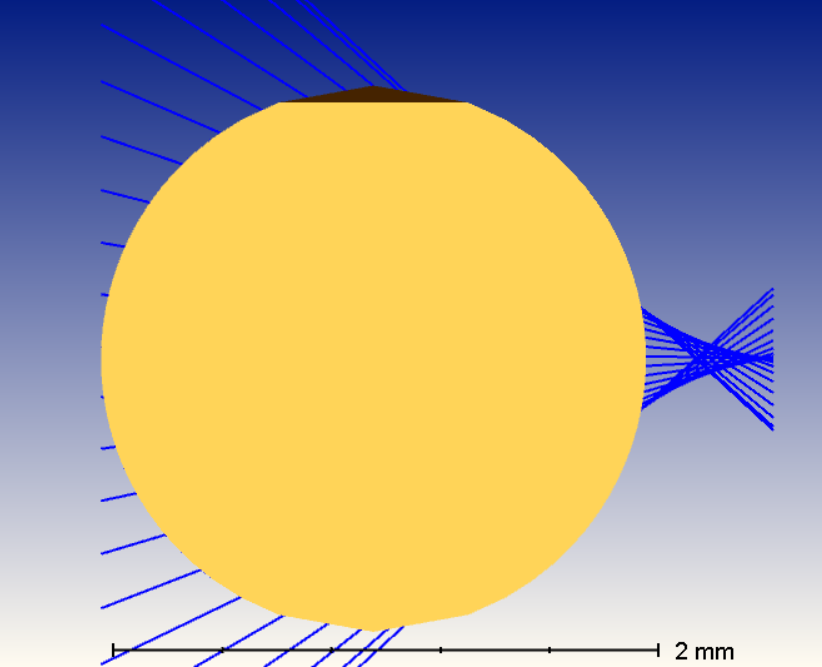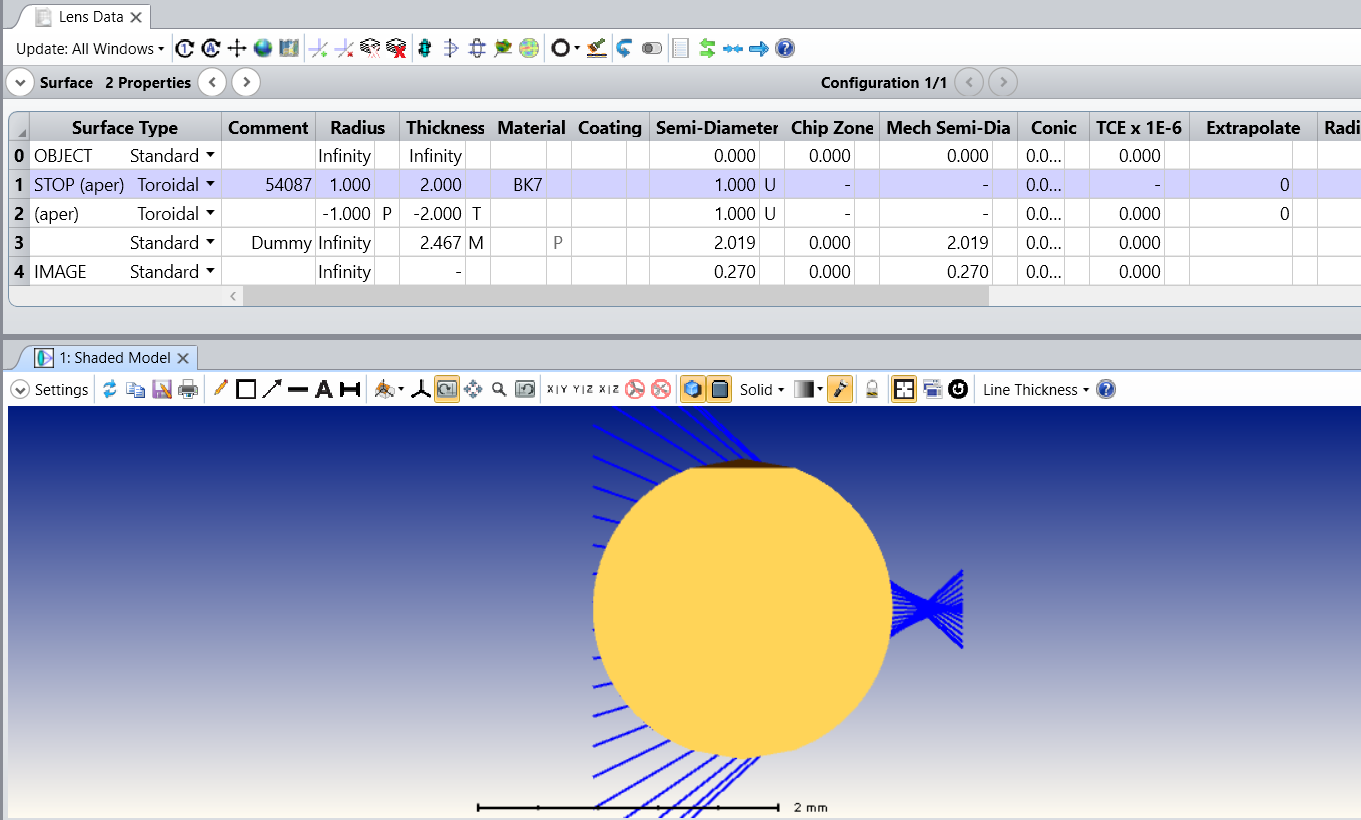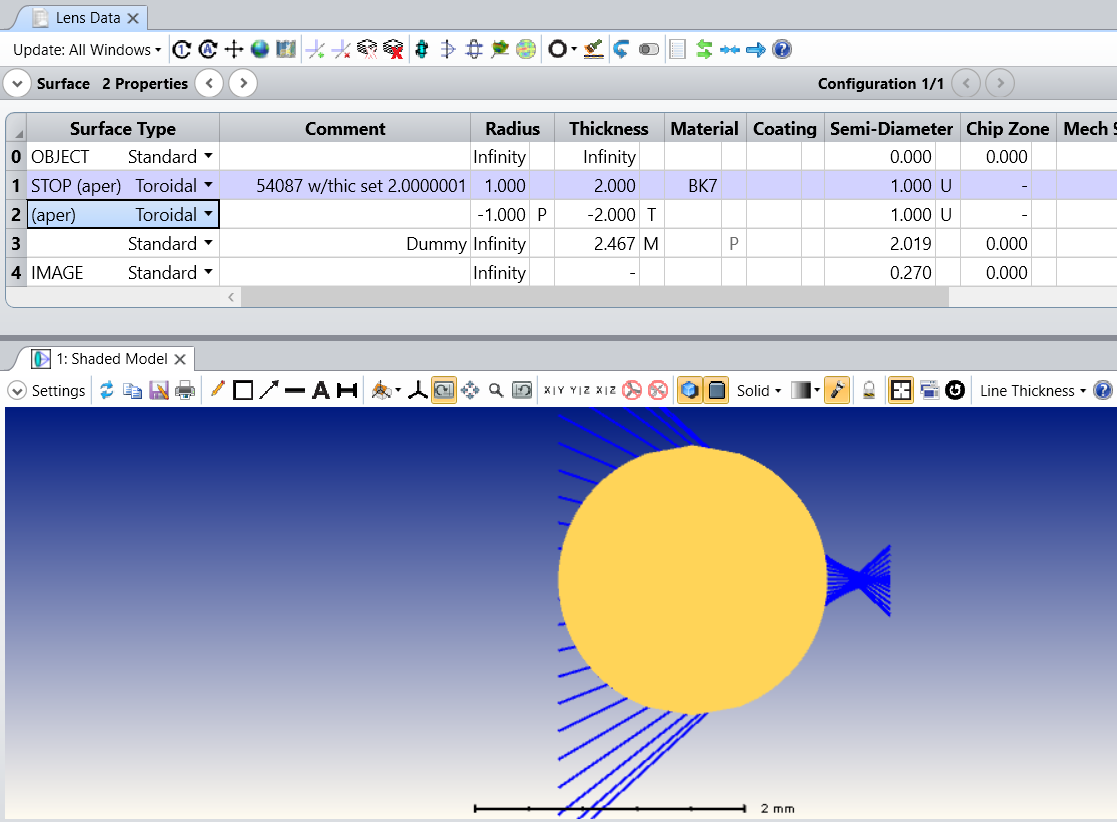I am trying to use the N-BK7 Rod lens from Edmund Optics in my non-sequential mode simulation. When I try to insert the lens into my system (located in the Zemax library under Edmund Optics, PN: 54087), I always get the error message "Invalid Toroid Sag." How do I fix this issue? Thank you for your help
Invalid toroid sag error in NSC model
Best answer by Nikki-G
Hi Steve,
I took a look at the 54087 file in Sequential Mode and played around with the Convert to NSC group tool.
It seems that, as is, the model has this shaded-off region, and whenever it’s visible, the conversion doesn’t work well, and it throws the toroidal sag error.


If I change the thickness to be anything larger than 2mm (I’m using 2.0000001mm), I am able to convert it to an NSC file without the error.

So, considering that the Diameter is given as 2.00 +0.00/-0.03 on the EO site, and something like 0.0000001mm (1 Angstrom) is far below the tolerance given in that spec, I think you should be fine to do this while simulating your system.
In conclusion, try out setting the thickness of surface 1 in sequential mode to 2.0000001, or whatever you find acceptable to fix the model, and convert it to an NSC model.
Here’s a KB article on how to use the Convert to NSC tool : Converting sequential surfaces to non-sequential objects – Knowledgebase (zemax.com).
Let me know if this works for you! Or if anyone else has more comments on this, I’d love to hear it!
Enter your E-mail address. We'll send you an e-mail with instructions to reset your password.


